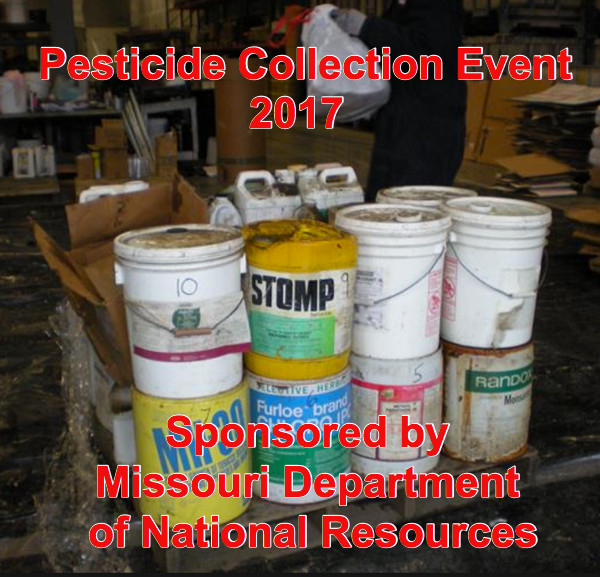
Spring Has Sprung, Maybe
There is a saying, “if you don’t like the weather, just wait a few minutes it will change.” This has very much been our weather pattern as of late. It’s hard to shift from sunbathing weather to snow in just a couple of days, but we have done it several times this winter. As we enter into spring, we need to take extra caution with the weather and be prepared for weather events that accompany a Missouri spring.
Tornadoes have already ravaged communities in our area and sadly the spring months are when we are most at risk. So what can you do to make yourself prepared? One really easy thing is to have a plan. I know it sounds really basic, but in an emergency do all of your family members know where to meet if you are separated or who to call to check in with? Having a plan can save precious time and worry.
Keeping track of the bad weather is another way to stay protected. We are lucky we live in a time that following the weather is easy and convenient. Local television and radio stations can track severe weather and warnings come much earlier than in years past. Most people have weather apps downloaded on their phones that allow them to see storms as they happen. This technology gives us a chance to find shelter and safety before the bad weather arrives. Weather radios can give notice to those without television or smartphones and can also wake those who are sleeping with sirens and alarms. All these early warning systems save lives.
Floods are also a common occurrence in our area in the spring. According to Ready.gov floods are the most common and most costly natural disasters in the United States. Whereas tornadoes and thunderstorms swiftly move through an area, floods can develop quickly or come achingly slowly.
Some things to remember with floods is that it takes only 6 inches of moving water to sweep a person off their feet. Don’t walk through a flooded area. And please do not attempt to drive through flood waters. Nearly half of all flash flood fatalities involve a person driving a vehicle. The slogan is Turn Around; Don’t Drown for a reason, it takes only 2 feet of water to float most cars away. Other dangers include roadways that could wash out in floods and unseen debris on roadways. It’s always better to play it safe and find an alternate way.
Living in Southeast Missouri we need to be weather aware, but remember spring is also a time of beauty and rebirth. Take the time to enjoy the blooming flowers and the beauty that is spring. I love living in an area that has all four seasons, but I would be okay with not having all four in one week.
If you have questions or need assistance, please call Aging Matters 800-392-8771 or 573-335-3331.
Bloomfield, Missouri - The Missouri Department of Natural Resources will be holding a Pesticide Collection Event Saturday, June 24, 2017.
The drop off location will be DeWitt Auction Company (220 DeWitt Drive, Sikeston, Mo).
They will be “accepting all pesticides including: herbicides, insecticides, fungicides, rodenticides, dewormers, fly tags, and fertilizer containing pesticides”.
Please note pesticides from businesses will not be accepted.
Your local University of Missouri Extension Office will have information on what you should do to transport these compounds and the procedure once you get to the location.
For any questions contact: C.J. Plassmeyer at 573-751-0616 or your local County Extension Office.
Jeff House, Agronomy Specialist,
Stoddard County University of Missouri Extension Office
316 S. Prairie Street, P.O. Box 169
Bloomfield, MO 63825

Recently there has been an influx in the number of scams targeting the Southeast Missouri area, some going as far as to target businesses.
Every time you hear of someone getting scammed the first thing most people say is “I’d never fall for that” or “it would never happen to me”, but theses scammers are smart. Scaring people and keeping them in a panic and off guard is how they are able to get money. When we are panicking, we are not thinking clearly. And almost everyone can make bad decisions when we don’t have time to think about things.
Recently an old scam has been making its rounds again.
A client told me that she had received a call from someone claiming to be her grandson. Many times they start the conversation by asking “Grandma, do you know who this is?” Now the scammer has a name to use. He informed her that he was traveling with a friend and they were pulled over and arrested for having drugs in the car. He was scared and almost in tears because he couldn’t tell his parents and neither could she. Every time she questioned an oddity, he had an answer; he didn’t sound like him, it was because he was sick and needed medicine.
She thought he was in school, it was spur of the moment and he didn’t tell his parents. She knew he didn’t use drugs; well it wasn’t him it was the friend. She was even allowed to speak with the police officer who told her it was only $3,000 for the bond. If she could just get that, her grandson would be free. Luckily this client realized something was off and did not get scammed out of her money, but not all are so lucky.
According to the National Council on Aging (NCOA), financial scams targeting seniors are so prevalent they’ve become the crime of the 21st century. As fast as law enforcement officials crack down on one case of fraud a new one pops up. And the roughly 10,000 people a day who turn 65 falls for an old scheme with a new twist.
So how do you protect yourself from scammers, practice saying “no”? No can be a complete sentence.
Send money to free your grandchild or buy this product or avoid going to jail.
No.
All we need is your Medicare Number.
No.
You’ve won millions of dollars; we just need some good faith money.
No.
It’s not rude to tell someone who calls you or knocks on your door unsolicited, no. In fact it just might save you some money and stress. If you think you have fallen for a scam report it to the local police or to the Federal Trade Commission (FTC) 1-888-382-1222.
The more we know, the more we can protect ourselves.

The Center of a Community
Aging Matters covers 18 counties in Southeast Missouri. That is a lot of miles when you need to drive it for meetings, presentations or to meet with clients.
Recently a new employee and I were in Van Buren for a meeting and realized it was time for lunch. If you know me, you know I do not like to miss lunch, but I also wanted something better than a quick fast food stop. We opted to dine at the local Nutrition Center, lucky for me it was fried chicken day. We had a delicious meal of fried chicken, mashed potatoes, salad, veggies and even dessert, all for a very reasonable price. As we sat there enjoying the meal my co-worker stated she was surprised by the bright and inviting dining room and the lively conversations around us, it was not what she had thought a senior center would be.
In the Aging Matters area there are 32 centers that provide over 1.5 million meals a year. That is a lot of food and nutrition going to seniors. These meals are nutritious and menus are overseen by a registered dietician. But meals are really just the beginning of what the centers offer.
According to the National Council on Aging, research shows that older adults who participate in senior center programs can learn to manage and delay the onset of chronic diseases and experience improvements in their physical, social, emotional and economic well-being. That is reason enough to go to your local center, but if not there is a lot of fun things to do.
Nutrition Centers, OAKS or Senior Centers as they are known, have come a long way in the last few years. Many offer educational and informational programs to help keep seniors in touch with programs in their community. They all offer a chance to meet with old friends and develop new friendships and each center offers something unique to the community. From BINGO, to crafting classes, to exercise groups to dances, there is something for everyone at the center. Today’s centers are reinventing themselves to meet the needs of the baby boom generation. Some centers even offer an evening meal and movie. Date night anyone?
If you think senior centers are for old people sitting in rocking chairs all day, think again. Times have changed and so have the centers. Contact your local center today, by phone or on the internet, to see what activities they offer that might interest you. Give them a chance to show you what makes them special. All ages are welcome and you might just be surprised by how much fun you have.
Aging Matters has centers in the following communities:
Arcadia/Signer Bismarck Bonne Terre Campbell Cape Girardeau
Caruthersville Chaffee Charleston Dexter Doniphan
East Prairie Ellington Farmington Fredericktown Hayti
Jackson Kennett Malden Marble Hill Naylor
New Madrid Park Hills Perryville Poplar Bluff Portageville
Puxico Qulin Ste. Genevieve Scott City Sikeston
Van Buren Williamsville

Trends in Charitable Giving - Bagby Wealth Management
According to Giving USA 2016, Americans gave an estimated $373.25 billion to charity in 2015. That’s the highest total in more than 60 years since the report was first published.1
Americans give to charity for two main reasons: To support a cause or organization they care about, or to leave a legacy through their support.
When giving to charitable organizations, some people elect to support through cash donations. Others, however, understand that supporting an organization may generate tax benefits. They may opt to follow techniques that can maximize both the gift and the potential tax benefit. Here’s a quick review of a few charitable choices:
Direct gifts are just that: contributions made directly to charitable organizations. Direct gifts may be deductible from income taxes depending on your individual situation.
Charitable gift annuities are not related to annuities offered by insurance companies. Under this arrangement, the donor gives money, securities, or real estate, and in return, the charitable organization agrees to pay the donor a fixed income. Upon the death of the donor, the assets pass to the charitable organization. Charitable gift annuities enable donors to receive consistent income and potentially manage taxes.
Pooled-income funds pool contributions from various donors into a fund, which is invested by the charitable organization. Income from the fund is distributed to the donors according to their share of the fund. Pooled-income funds enable donors to receive income, potentially manage taxes, and make a future gift to charity.
Fast Fact: Contributions by individuals, couples, and families accounted for 71% of the $373.25 billion donated to charitable organizations in 2015.
Giving USA Foundation, 2016
Gifts in trust enable donors to contribute to a charity and leave assets to beneficiaries. Generally, these irrevocable trusts take one of two forms. With a charitable remainder trust, the donor can receive lifetime income from the assets in the trust, which then pass to the charity when the donor dies; in the case of a charitable lead trust, the charity receives the income from the assets in the trust, which then pass to the donor’s beneficiaries when the donor dies.
Using a trust involves a complex set of tax rules and regulations. Before moving forward with a trust, consider working with a professional who is familiar with the rules and regulations.
Donor-advised funds are funds administered by a charity to which a donor can make irrevocable contributions. This gift may have tax considerations, which is another benefit. The donor also can recommend that the fund make distributions to qualified charitable organizations.
Some people are comfortable with their current gifting strategies. Others, however, may want a more advanced strategy that can maximize their gift and generate potential tax benefits. A financial professional can help you assess which approach may work best for you.
Remember, the information in this article is not intended as tax or legal advice. And it may not be used for the purpose of avoiding any federal tax penalties. Please consult legal or tax professionals for specific information regarding your individual situation.
Contact Bagby Wealth Management, 302 North Walnut Street, Dexter, MO 63841
p.(573) 624-4771
f. (573) 624-4004

